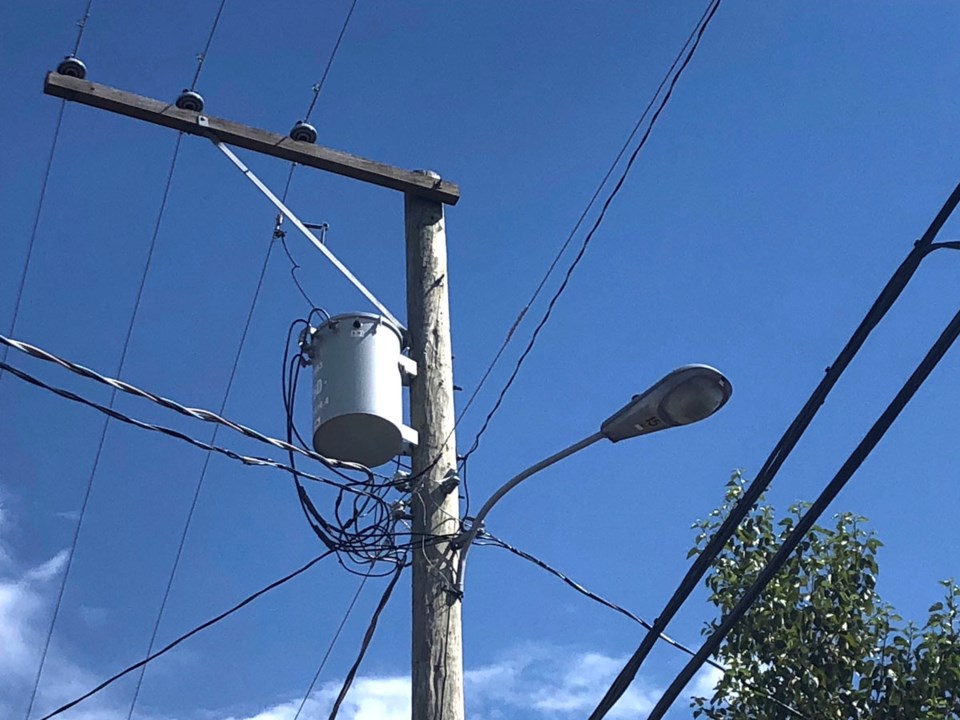Self-represented brothers who aired their grievances in court about BC Hydro replacing a power pole more than a decade ago lost their case on Thursday, Dec. 19.
James and Michael Cavanagh had accused BC Hydro of damaging their driveway and culvert at 9603 Summit Lake Rd. by removing an old power pole and placing a new one too close to a creek, thus endangering fish. For that, Michael Cavanagh told the court, BC Hydro should be fined $4 million to $11 million.
But B.C. Supreme Court Justice Ronald Tindale dismissed the Cavanaghs’ trespass and damage lawsuit in its entirety after a five-day trial last April and June.
“The plaintiffs have not proven on a balance of probabilities that the damage to the driveway was caused by BC Hydro or even when the damage to the driveway occurred,” Tindale wrote.
James Cavanagh testified that his brother “came to his house and was very agitated” on May 15, 2014.
“James Cavanagh testified that his heart and soul were damaged by the actions of the defendant. He does not understand how they approved this theft from him,” Tindale wrote.
BC Hydro denied the allegations. Its powerline technician, Lee Simpson, testified that subcontractor Allteck conducted the pole replacement and the company was hired because it “did good work.”
Under cross-examination, Simpson said it was not a common practice to replace a pole in the same hole as an existing one, “though that does occur on occasion.” Crews try, however, to set a new pole in place “as close to the old pole as possible without disturbing ground.”
BC Hydro argued that the plaintiffs readily acknowledged they have blocked BC Hydro access to the property since the new pole’s installation.
Tindale ruled that BC Hydro was authorized to enter the property to install the new pole, which happened April 17, 2014. The Cavanaghs noticed the alleged damage to the driveway almost a month later. There is no evidence that BC Hydro harmed McMillan Creek.
“It is clear that the plaintiffs are deeply upset that BC Hydro installed the new pole on the property, however in my view the plaintiffs’ emotions have interfered with their judgment in the conduct of this litigation,” Tindale wrote.


.png;w=120;h=80;mode=crop)
